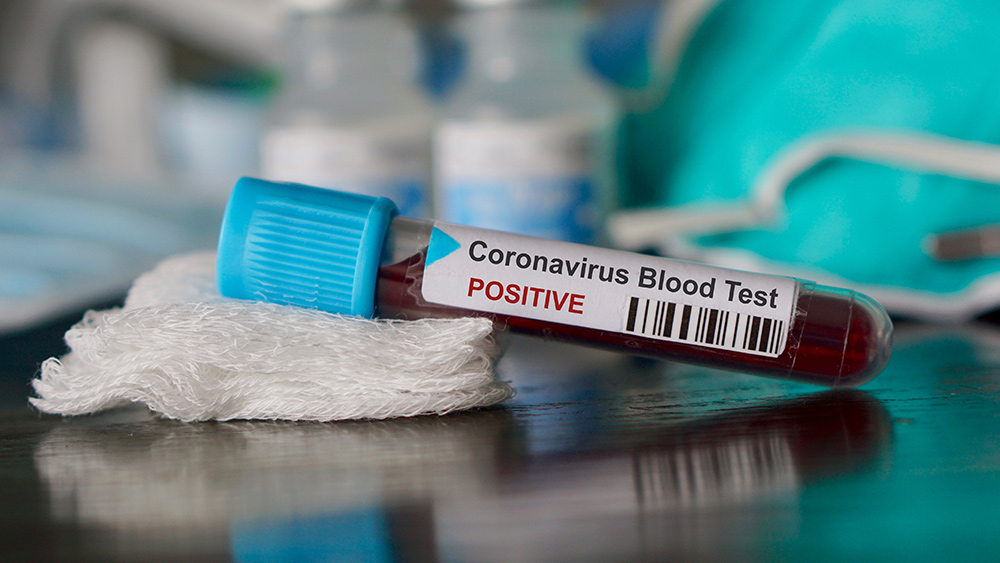Antioxidants in Indian gooseberry help maintain cardiovascular health and boost immunity
03/20/2020 / By Janine Acero

Dietary supplements are made from different natural sources, but they have one common purpose: to support a person’s bodily functions and systems. Now, a recent study published in the journal BMC Complementary and Alternative Medicine indicates that supplements made from amla extract (Indian gooseberry) can support cardiovascular health by improving endothelial function, reducing markers of oxidative stress and boosting immune response in people with metabolic syndrome.
The role of endothelial cells in cardiovascular function
Endothelial cells are cells that line the surface of blood vessels, forming a thin layer (endothelium) between the vessel wall and the circulating blood. The endothelium serves as a barrier that helps control the passage of materials and the transit of white blood cells in and out of the bloodstream.
Endothelial dysfunction occurs when the endothelium is hindered from performing its important functions, due to several causes that include diabetes or metabolic syndrome, high blood pressure, smoking and a generally unhealthy, sedentary lifestyle.
Endothelial dysfunction also contributes to the development of atherosclerosis or plaque buildup in the arteries that clog them and block the flow of blood.
Amla extract improves endothelial function, immune response
Researchers from India evaluated the effects of a standardized aqueous extract of amla, or Indian gooseberry (Phyllanthus emblica), on endothelial dysfunction, oxidative stress, systemic inflammation and the lipid profile of participants with metabolic syndrome.
The study involved 59 individuals with an average age of 57, all of whom have metabolic syndrome. These men and women were randomly assigned to one of three groups: One group received 250 mg of amla extract; another group received 500 mg of amla extract; and the last group received a placebo. The participants took their assigned doses twice a day for 12 weeks.
At the end of the supplementation period, the researchers observed that those who took 500 mg showed significant reduction in total cholesterol (11 percent), LDL cholesterol (21 percent) and triglycerides (19 percent), as well as a seven percent increase in HDL cholesterol. Those who took 250 mg also showed significant improvements in endothelial function, as well as a reduction in biomarkers of oxidative stress and systemic inflammation.
The researchers also noted that no participant discontinued the supplementation due to adverse side effects.
The researchers conclude that, while both doses had significantly better effects than the placebo, the 500 mg twice daily dose was “significantly more efficacious than the 250 mg twice daily dose.”
They added that further research involving a larger population is needed to determine if supplementation of amla extract can be a “novel therapeutic alternative in improving the components of metabolic syndrome.” (Related: Reduce cholesterol and improve heart health with Indian gooseberry.)
The nutritional profile of Indian gooseberry
As the recent study indicates, Indian gooseberry can help improve cardiovascular function, as well as immune response, all thanks to its impressive nutritional profile.
Just one cup (150 g) of gooseberries contains:
- Calories: 66
- Carbs: 15 g
- Fat: less than 1 g
- Fiber: 7 g
- Protein: 1 g
- Copper: 12 percent of the Daily Value (DV)
- Manganese: 9 percent of the DV
- Potassium: 6 percent of the DV
- Vitamin B5: 9 percent of the DV
- Vitamin B6: 7 percent of the DV
- Vitamin C: 46 percent of the DV
Gooseberries are a rich source of vitamin C, a potent antioxidant that supports the immune system and nervous system and promotes healthy skin.
They also contain copper, an essential nutrient for the optimal functioning of the heart, blood vessels, immune system and brain. Another mineral present in gooseberries is manganese, which also supports the immune system and is required for metabolism, bone formation and proper reproductive function. Meanwhile, the potassium in gooseberries is vital for normal cell function.
Gooseberries are also packed with fiber and are low in calories. One cup (150 g) of gooseberries provides 26 percent of the DV for fiber, and eating one cup (150 g) provides over 3 percent of the average person’s total daily calorie needs.
There are several factors that contribute to metabolic syndrome, one of which is obesity. Gooseberries make for a great low-calorie snack that is also high in satiating fiber, which can help in weight management when coupled with regular exercise and an overall balanced diet.
Committing to a healthy lifestyle is key to preventing metabolic syndrome and a myriad of other health problems. Visit Prevention.news to learn more.
Sources include:
Tagged Under: Amla, antioxidants, blood vessels, cardiovascular health, endothelial function, fightobesity, food cures, food is medicine, foodscience, fruits, functional food, immune system, Indian Gooseberry, natural cures, natural medicine, nutrients, research, supplements


















